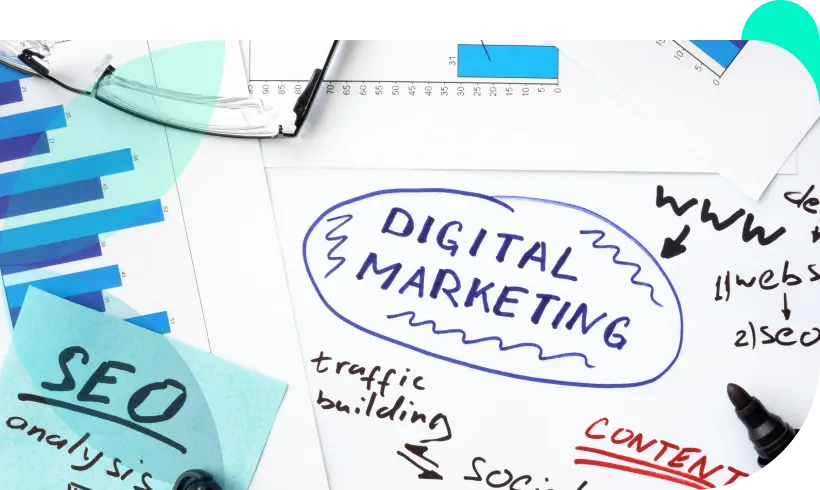In the ever-evolving digital space, one constant thing is the importance of content creation. Content was, is and will be the king. However, content marketing is always a work in progress. You cannot simply create a great piece of content, publish it online, and expect it to perform better every time. It takes a lot of effort and understanding to determine how and what makes your content work every time you publish a new one.
One way to achieve this is to measure your results as your digital campaigns evolve and mature. In the digital space, it’s often referred to as measuring the content marketing ROI.
What is content marketing ROI?
According to some of the best digital marketing agency in Melbourne, it is a percentage that shows how much amount or revenue you earned from your content marketing compared to what you spent. It is a measure of how effective your content marketing strategies are.
Content can be anything that you post online, including:
- Blog
- Articles
- Social media content
- Infographics
- Email marketing
- Videos
- Slideshows and presentations
Measuring the content marketing ROI is important for businesses, as it:
- Helps them boost their brand equity and build social value.
- Helps boost trust and build loyalty
- Generate quality leads
- Helps achieve top-of-funnel (TOFU) goals and persuade customers to buy
Challenges in measuring content marketing ROI
There remains industry-wide confusion about how to track the success metrics of content and its distribution effectively. In fact, according to a survey, ROI measurement is the number one of the biggest digital marketing challenges marketers face. Almost 30% of those surveyed reported that proving the financial return of their content-driven marketing activities is a common problem.
Businesses face challenges in measuring content marketing ROI because of the intangible nature of brand impact, audience engagement, and long-term value. Unlike direct sales, quantifying the influence of various content marketing elements, like blogs, social media, email marketing, etc., on actual revenue can be difficult.
In addition, measuring success entirely to one piece of content is challenging amid a web of marketing efforts.
While measuring the content marketing ROI is challenging, effective content measuring strategies should comprise the following ways to help you better understand the return on your efforts.
-
Consumption Metrics
The first question you should ask when measuring your content marketing ROI is, “How many people saw your content marketing campaigns”?
To answer this question, you can use tools like Google Analytics, which collects information and creates reports automatically based on specific criteria.
The key performance indicators (KPIs) you should consider for content consumption metrics are:
- Unique visits
- Time spent on site
- Bounce rate, or the percentage of viewers who leave your website after looking at one page
- Downloads of your email-gated content or ebooks
-
Sales Metrics
It measures the total sales generated by your company since the initiation of the content marketing campaign. To measure this metric, consider your conversion rates or the number of viewers who chose to purchase from you after carefully considering it.
For example, a visitor visits and explores your products, puts an item in their shopping cart and buys it; that’s a conversion.
However, a B2B business should consider completing a lead or contact form conversion instead.
-
Lead Quality Metric
A lead is a viewer who shows interest in your offerings. The more likely they are to convert, the higher quality leads they are.
Creating information and engaging content helps viewers learn more about your business. This way, content helps you generate leads more likely to buy from you.
Content marketing campaigns allow you to funnel potential customers to turn into leads that ask for their contact information. You can use this information to follow up later and push a potential sale.
One important thing here is to track your total number of leads as well as those generated directly by content pieces.
-
SEO Metrics
Your SEO efforts can also help you analyse how well your content is performing. You can consider some of the following factors:
- How high does your content rank in search engine results?
- Has your content appeared in featured snippets for question searches?
- Number of inbound links
- Has your domain authority increased?
Measuring your SEO success will help you see how your content brings in more traffic, sales and revenue to your business.
-
Social Media Metrics
When it comes to social media, it has its own set of content metrics, such as clicks, likes, shares, and comments. These all can be trackable metrics indicating your content marketing ROI.
The good news is social sharing is relatively easy to track. However, putting a monetary value to it could be a challenge. Making ROI from sharing on social media is a bit subjective. Yet, social media is a crucial part of content marketing because it exposes your brand to a new audience.
Conclusion
The success of your content marketing depends on your ability to understand and measure key metrics correctly. Without tracking your efforts, it’s impossible to understand the effectiveness of your content marketing efforts and improve them.
